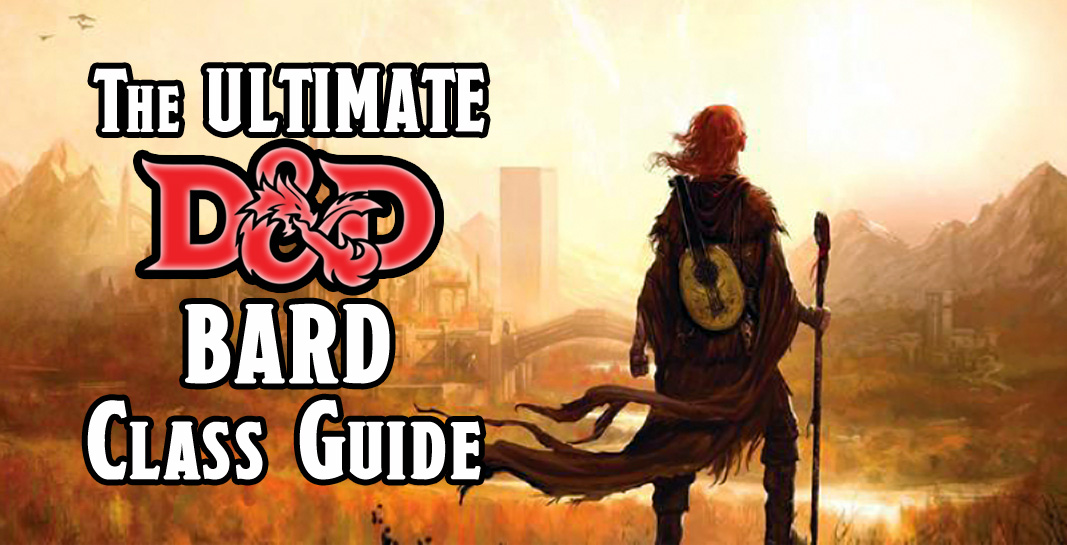
Bards are one of, if not the most, versatile class in the game, filling in as a melee, ranged, support, or caster depending on their build. Bards are a “Jack-of-all-trades” class that has the potential to do all things, though not nearly as well as a more specialized character.
Follow this guide to discover how to best optimize the skills, weapons, features, and abilities for a D&D 5e Bard class character build. While the options presented here may be the optimal build for a bard (in my opinion), the beauty of D&D character creation is that the only limit is your imagination so feel free to build your character whichever way you want to.
The guide that follows uses a color-coding system to rank the abilities granted.
Blue = An essential, class-defining ability you would be remiss to overlook.
Green = A strong choice for your class.
Orange = Average option, useful in specific circumstances
Red = Below average, extremely situational, or otherwise just bad.
All features and abilities are from the core rulebook set (Player’s Handbook, Monster Manual, and Dungeon Master’s Guide) unless otherwise attributed.
Party Role
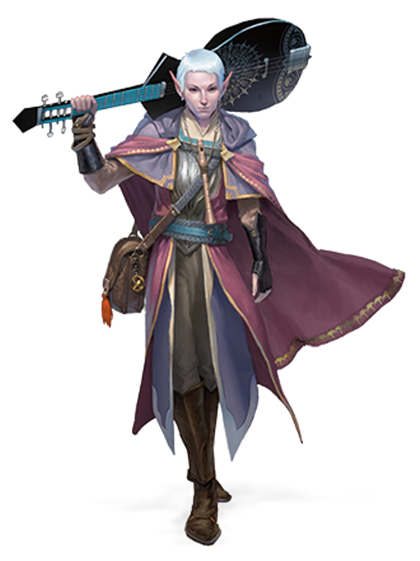
Bards are an extremely versatile class. Their primary use is as a “Jack -of-all-trades” type support character, having as many proficiencies available as possible. Alternately, a Bard can specialize in one aspect of their abilities to fill in a gap in the party’s skillset, as needed. Blade and Valor bards excel in combat, while Lore bards can learn spells normally only known by one or two other specific classes.
Strengths:
- Bards naturally possess more options in skill proficiencies than any other class, and more overall skill proficiencies than any other class, save for Rogues. They are also able to use skills they are not proficient with reliability given their Jack-of-all-trades ability.
- Bards have the potential to emulate almost any other class with their wide variety of skills, spells, and College abilities. Just knowing a character is a bard doesn’t actually give any clue as to what to expect from them in terms of spellcasting, weapon proficiencies, or skillset.
- The Bard spell list has many spells that do not appear on any other class’ list, and a unique combination of support, control, disruption, and buffs most spellcasters would be jealous of.
Weaknesses:
- Hit Points. Bards are on d8 hit die, which is on the lower end of the spectrum, meaning they’re more fragile than most. It’s relatively high for a full casting class, but very low for a combat specialty class. Coupled with their lack of armor proficiency outside of specific Bardic Colleges means you’re not going to be the party’s tank.
- Dexterity is one of the best saves to have proficiency, but Charisma isn’t necessarily a good choice when given one. Your lack of Constitution and Wisdom save proficiency means you’re vulnerable to the most dangerous effects of higher-level spells that cause mind control or save-vs-death.
Check out this video by Don’t Stop Thinking which summarizes the D&D Bard Class:
Ability Scores
Strength: The bard’s dump stat. Even if you’re playing with weapons, you’ll want to prioritize Dexterity, both to increase your AC and to use finesse weapons.
Dexterity: You desperately need good Dexterity if you want to be a physical combatant. Your hit points aren’t beefy enough to carry you, and without taking feats or a specific Bardic college, you won’t be able to rely on your armor either.
Constitution: Everyone needs hit points. Don’t ignore this stat, especially since you’re not proficient with Constitution saves.
Intelligence: Depending on your skill selection, you’ll want to focus on either Int or Wis.
Wisdom: Depending on your skill selection, you’ll want to focus on either Int or Wis.
Charisma: Bard’s use Charisma as a main stat for spellcasting and can make very good use of the associated skills. Your Bardic abilities are based on your Charisma as well, so maximizing this will give you more uses of your Bardic Inspiration, among other things.
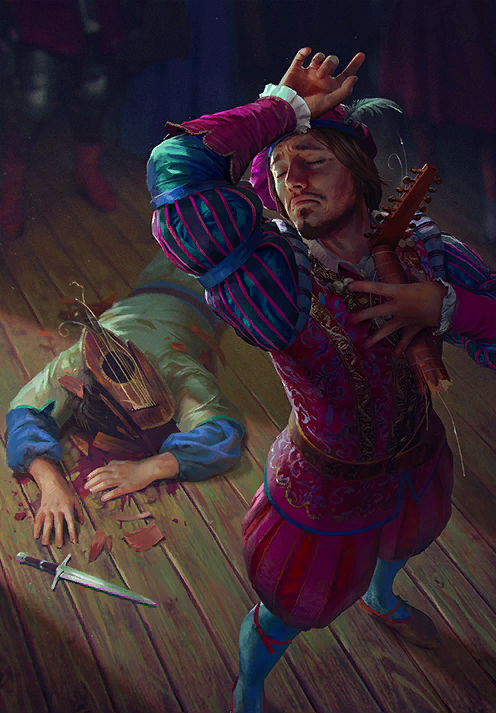
Races
Greyhawk and Forgotten Realms Races
AarakocraEEPC: Flight is the best movement option but isn’t specifically useful for the Bard.
AasimarVGtM: The bonus to Charisma is excellent.
Fallen: Makes a great Valor Bard.
Protector: If you’re prioritizing Wisdom-based skills.
Scourge: The Aura is great for a Sentinel Bard.
BugbearVGtM: Not a good choice for the Bard.
DhampirVRGtR: None of the abilities are well suited towards Bards.
Dragonborn: Only if you’re making a Strength-based character, typically a Valor or Swords Bard.
Dwarf: Dwarves don’t provide anything especially useful for Bards.
Hill Dwarf: Nothing good except the bonus hit points.
Mountain Dwarf: A Strength-focused Valor Bard might choose this.
DuergarSCAG: Worse than the other two subraces.
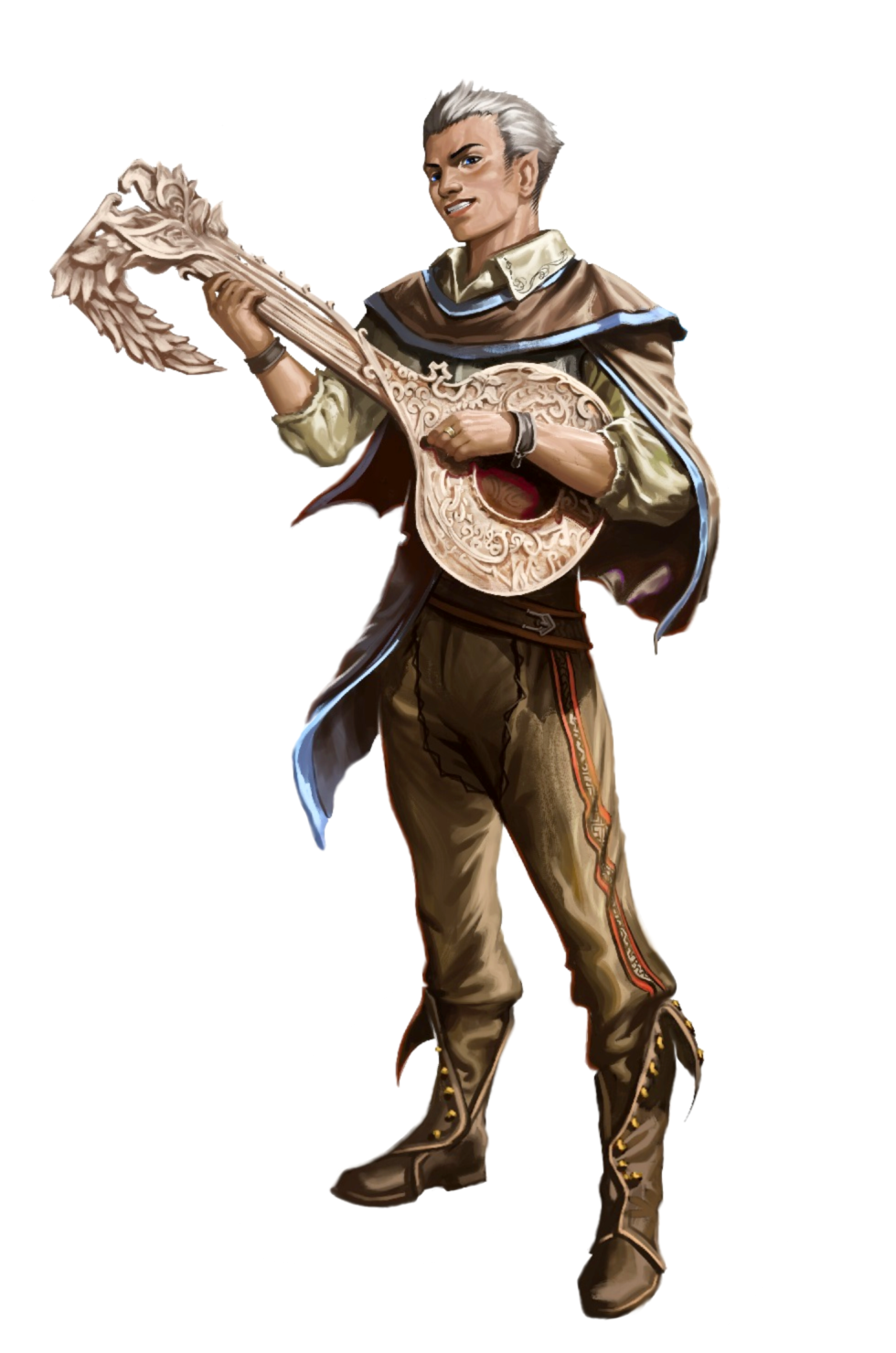
Elf: As a melee build, the Dexterity works. The bonus skill proficiency adds value as well.
Drow: Charisma, but the Sunlight Sensitivity is hard to get over.
EladrinMToF: The perfect stat mix for Bards, and a teleportation power as well.
High Elf: Not a good fit compared to other Elf subraces.
Sea ElfMToF: Not a good fit compared to other Elf subraces.
Shadar-KaiMToF: Not a good fit compared to other Elf subraces.
Wood Elf: Not a good fit compared to other Elf subraces.
FairyTWBtW: Flight and spellcasting make this a great pick.
FirbolgVGtM: The abilities are useful, but the ability scores are all wrong.
GenasiEEPC: Not useful for Bard.
Air: No skill or ability synergy.
Earth: No skill or ability synergy.
Fire: No skill or ability synergy.
Water: No skill or ability synergy.
GithMToF: These races are powerful on their own, but not very synergistic with the Bard class.
Githyanki: All the weapon and armor proficiencies make up for the lack in a Lore Bard, giving you a solid build. However, you don’t get much in the way of ability scores.
Githzerai: Not a good fit, though it is powerful on its own.
Gnome: Gnomes don’t make very good Bards, as they don’t do much with Intelligence beyond the knowledge skills.
Deep (Svirfneblin)EEPC/SCAG: Not useful for Bards.
Forest: The Dexterity boost makes this the only viable subrace.
Rock: Nothing good for Bards.
GoblinVGtM: If you’re playing the Rogue of the group as well, this gives you a good starting point with its extra mobility and Dexterity boost.
GoliathVGtM/EEPC: Counterproductive to Bards.
Half-Elf: One of the best choices overall, given the automatic Charisma increase and customization.
Standard: Two skills is better than anything the other subraces offer.
AquaticSACG: Only in an aquatic campaign.
DrowSCAG: The spells provided are already on your list, but the extra skills are worth it.
Moon/SunSCAG: One Word: Cantrip.
WoodSCAG: Not a lot of extra synergy here.
Half-Orc: Only useful in a strength build.
Halfling: The bonus Dexterity makes this a good choice for melee focused characters.
Lightfoot: Charisma and Naturally Stealthy are a great pair of abilities.
GhostwiseSCAG: Not useful for Bard.
Stout: Inferior to Lightfoot, but not as bad as Ghostwise.
HobgoblinVGtM: Not useful for Bard.
HarengonTWBtW: All the quickness, mobility, and evasiveness you need as a support character in one tight little package.
HexbloodVRGtR: You gain several useful magic pseudo-spells including scrying, message, and two very useful spells added to your spell list with a free cast once per long rest.
Human: Versatile, and a good choice for any class.
Standard: Really the measuring stick for all the other races.
Variant: Starting with a Feat and a bonus to Charisma puts you in a good place.
KenkuVGtM: More skills, but no good ability score bonus.
KoboldVGtM: Not useful for Bard.
LizardfolkVGtM: Not useful for Bard.
OrcVGtM: Not useful for Bard.
RebornVRGtR: In most cases, this race would be mediocre. In the case of a skill-forward class like Bard, the Knowledge from a Past Life ability will come in very useful.
TabaxiVGtM: Great ability score increases and two skills.
Tiefling: Bonus Charisma to start, and your pick of other interesting traits.
Standard: The Basic Tiefling makes a solid Bard, but there are some interesting abilities elsewhere that are more useful.
Devil’s TongueSCAG: The bonus spells are ones from your list you’d likely choose in any Bard.
FeralSCAG: Not useful for Bard.
HellfireSCAG: Trades one defensive spell for an offensive one.
WingedSCAG: Flight is the best movement mode.
AsmodeusMToF: Devil’s Tongue gives better spells.
BaalzebulMToF: Only good for a spell slinger build.
DispaterMToF: Better spells than Asmodeus.
FiernaMToF: Good spells for a diplomacy build.
GlasyaMToF: Illusion focused with good ability scores.
LevistusMToF: Good on a Valor Bard going for a defensive build.
MammonMToF: Spells from off your normal list.
MephistophlesMToF: Poor ability score spread.
ZarielMToF: Good for a Valor Bard.
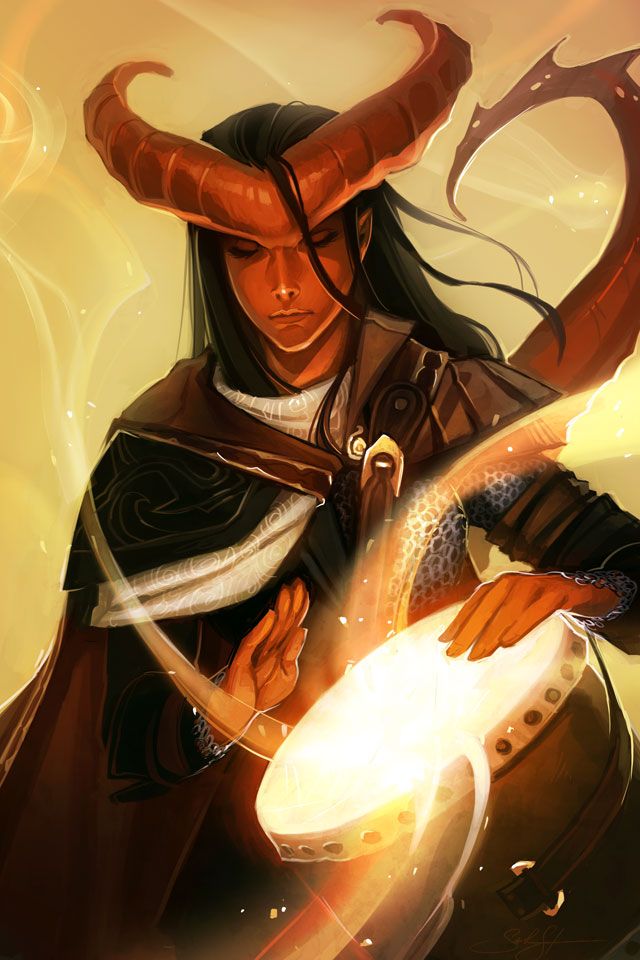
TortleXGE/TP: Not useful for Bard.
TritonVGtM: Amazing ability score combination for a Valor or Swords Bard.
Yuan-Ti PurebloodVGtM: The Intelligence boost isn’t much, but the rest is really strong.
Eberron Races
ChangelingERLW: Charisma, and a unique infiltration and manipulation trait.
KalashtarERLW: The Charisma increase is what you’re looking for. The rest of their abilities are very unique and specific to the theme of Eberron, and don’t really have much bearing on the Bard class.
OrcERLW: Not useful for Bard.
ShifterERLW: Darkvision, and that’s about it. Swiftstride is ok.
Beasthide: Not useful for Bard.
Longtooth: Not useful for Bard.
Swiftstride: The Ability score increases are there, but the rest doesn’t really play into the Bard’s style.
Wildhunt: Not useful for Bard.
WarforgedERLW: A versatile option that’s good for any class. Become a Jukebox Hero.
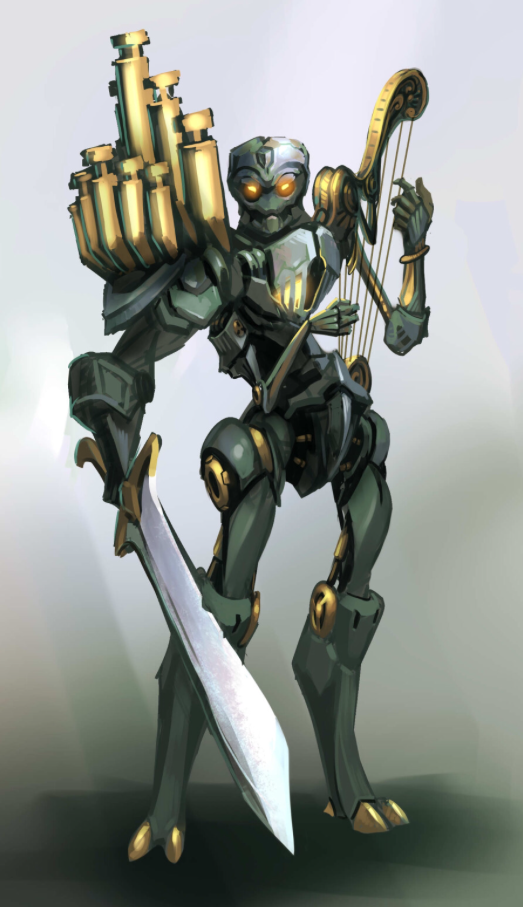
Ravnica Races
CentaurGGTR: Not useful for Bard.
LoxodonGGTR: Not useful for Bard.
MinotaurGGTR: Not useful for Bard.
Simic HybridGGTR: The flexible ability score increase is great. Most of the mutations don’t have much bearing on the Bard class, but there’s no denying how powerful this race is.
VedalkenGGTR: Not useful for Bard.
Theros Races
Leonin: Makes a solid Strength-based Valor or Swords Bard.
Satyr: Dexterity and Charisma are exactly what you’re looking for. Satyr is the perfect Bard.
Strixhaven Races
OwlinSACoC: Flight, Stealth, and Darkvision for when you’re waiting in the wings (pun intended) between performances or turns in combat.
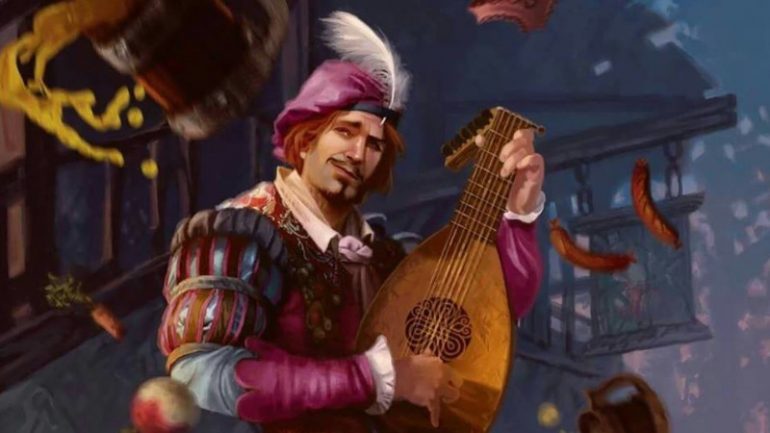
Class Features
Hit Dice: d8 is a solid hit die for a full casting class, but it leaves you wanting more as a melee combatant. unless you choose the College of Valor to get more armor proficiencies, you’re going to need to watch yourself.
Weapon Proficiencies: Bards are only proficient with a small handful of weapons. This is also a huge drawback if you’re trying to fight in melee.
Armor Proficiencies: Bards are only proficient with light armor and do not gain shield proficiency. This leaves them vulnerable in combat.
Tool Proficiencies: Bards are proficient with three musical instruments of their choice.
Saving Throws: Dexterity and Charisma. While Dexterity is one of the most important saves, Charisma saves rarely come up.
Spellcasting: Bards are full casters, which unlike past editions, puts them on par with Wizards and Clerics in terms of number of spells known and able to be cast per day. This makes a magic-forward Bard a viable build for the first time in D&D History. Depending on your bardic college, you can prioritize the spellcasting aspect of the class to create a unique, and powerful build.
Jack of All Trades: Easily the best and most defining ability Bards get, once you reach level 2 you can complete any skill or ability check as though you were half proficient at it. While not explicitly stated, beyond just skill checks, this applies to ALL SKILL CHECKS including, but not limited to, initiative rolls, using counterspell and dispel magic, Constitution checks to resist the effects of a forced march, holding your breath, surviving without food or water, and various other ability checks you will come across in your travels.
Song of Rest: Your party is going to take damage. You’re going to take short rests. Your allies are going to roll hit dice to regain hit points during these short rests. Therefore, you’re always going to increase the amount of hit points your allies will recover without draining spell slots, using items, or otherwise using resources you worked hard to acquire. Your mere presence makes people healthier. As you increase in level this increases in efficiency, providing the equivalent of an extra hit die to everyone each time you rest.
Expertise: This ability is exquisite. Considering you start with three skills already, once you get this you’ll excel in two of them.
Font of Inspiration: Recovering your Bardic Inspiration die after a short rest means you should dole out the dice as soon as possible, whenever given the opportunity in combat. You’re likely to have 15 total dice to give out per day if you’ve maximized your Charisma, so make them count!
Countercharm: This ability is quite useful, but only if it comes up. It’s generally more useful (and more common) to grant bonuses to prevent being affected by an ability rather than to break it once it begins, and since this consumes your action, it’s limited to a reactionary ability rather than something you’re going to use preventatively, lest you waste a turn.
Magical Secrets: The Bard spell list is pretty solid, but the ability to grab a spell from another full-caster class at this level, means you’ll learn something of up to 5th level, which are some of the best spells in the game. This plays into the Bard’s impressive versatility.
Superior Inspiration: Once you reach this level, you’ll want to dish out your inspiration before combat, that way you’ve got allies ready to go before you roll initiative and get an additional die once combat begins.
Bardic Colleges
College of CreationTCoE
This bardic college specializes in deus-ex machina. The best ability this class offers is intentionally nebulous and vague in its exact function and solves a ton of problems in a completely off-the cuff way. A great choice for a very artistic-minded or creative player, this college offers support solutions open to the limits of your imagination.
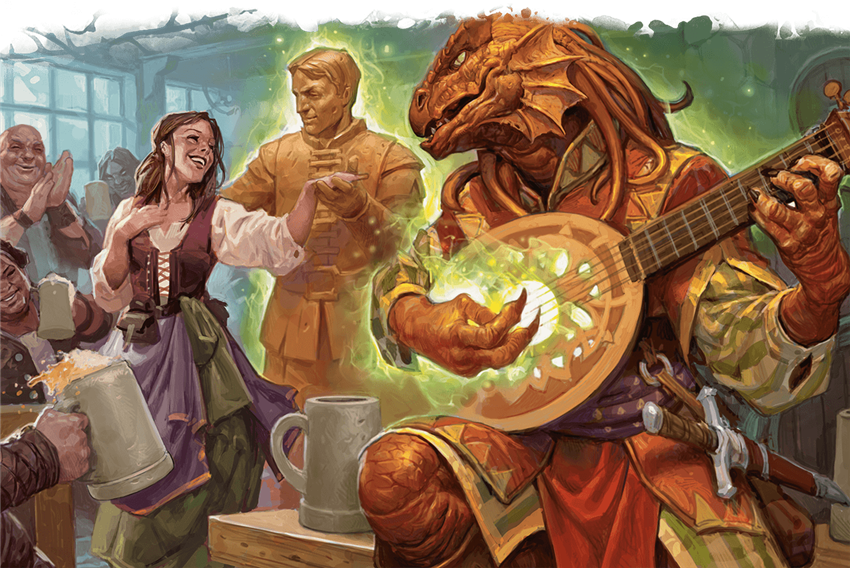
Mote of Potential: This ability gives you a few great alternative uses for your inspiration die.
Ability Check. Advantage on your skill check’s inspiration die, effectively giving you better odds.
Attack Roll. Turn an attack into a flashbang grenade.
Saving Throw. The overall best use of this ability, gaining temporary hit points after making a save can soften a big hit.
Performance of Creation: This ability lets you create anything you can think of, as long as it’s within the size and cost constraints. To really take advantage of it, make a list of inexpensive materials to make common things out of. Paper, wood, and stone are very cheap compared to metal. A paper boat coated in wax still floats.
Animating Performance: The animated item you create with this ability has a decent stat block. Combining it with a perfect facsimile of a creature created by your Performance of Creation ability gives you a golem doppelganger that’s as convincing as your skill at imagining a person.
Creative Crescendo: And now you can make many items with your performance of creation ability. Don’t think twice about opening one of those shops that sells items only to mysteriously disappear as though a dream once the customer walks out the door.
College of EloquenceMOoT
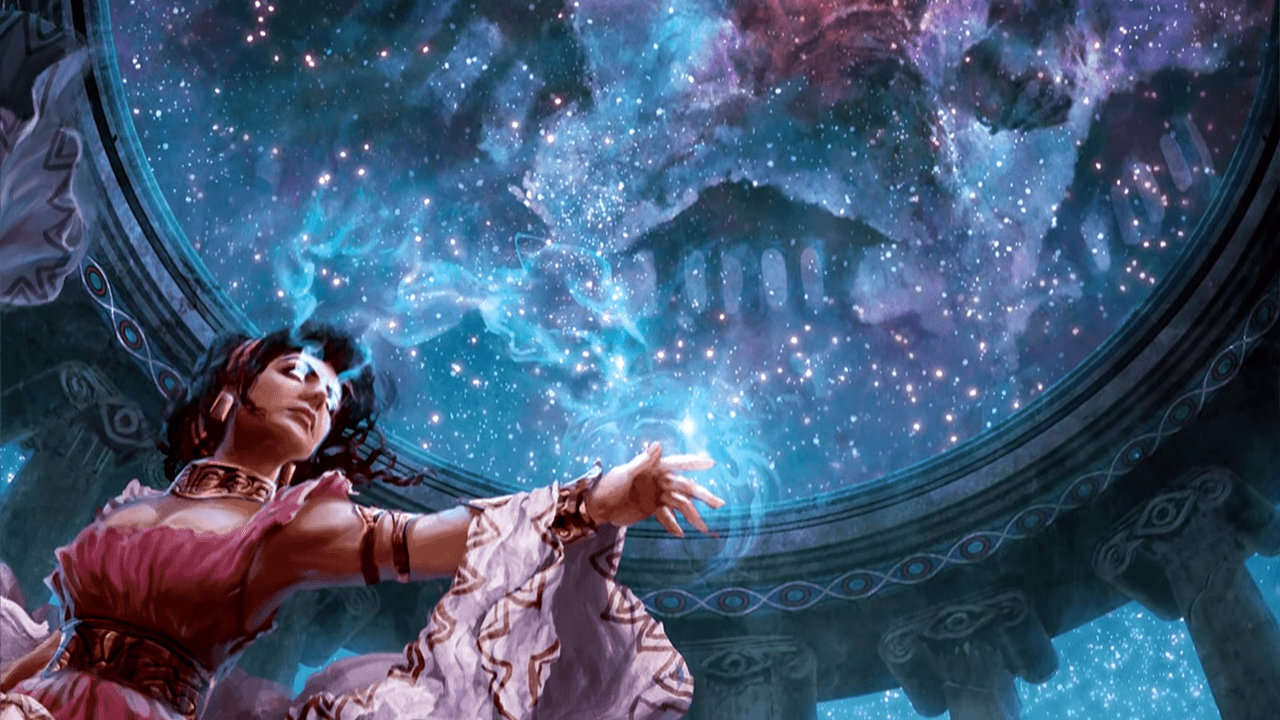
This bardic college sees you specialize in oration, storytelling, and commanding a crowd with your presence and words. You are a diplomat, swaying men with your persuasive tongue.
Silver Tongue: Using 10 as a replacement value for a lower roll on Persuasion and Deception means you have a very good chance of talking your way out of almost any situation. If you’ve stacked your skills such that at least one of these is your expertise, you’ll likely have a floor of 16 on a skill check, which is enough to talk your way past most minor NPCs.
Unsettling Words: Combo alert! Using your bonus action to activate this ability and your action immediately afterwards to cast a debuff on an unsuspecting foe gives you a strong chance to hit them with one of your many disruption or control spells.
Unfailing Inspiration: This ability brings your party roll to a whole new level. Once you use Bardic Inspiration to grant a creature the extra die, they don’t lose it for the duration until they succeed on the affected roll. That means they have ten minutes of chances to succeed on an attack, save, or skill check. This is incredibly useful for a very difficult skill check or that attack roll that simply cannot miss. You can also make a risky move, with the solace that you won’t lose the die if the attempt fails.
Universal Speech: You can cast Tongues, but this saves the spell slot. This is situational.
Infectious Inspiration: This effectively doubles the amount of inspiration dice you have each day.
College of GlamourXGtE
The College of Glamour is best for a Bard looking to function purely in a support capacity. It doesn’t provide any additional combat options or weapon and armor proficiencies, but it does augment your spellcasting to impressive lengths through the Mantle of Inspiration ability.
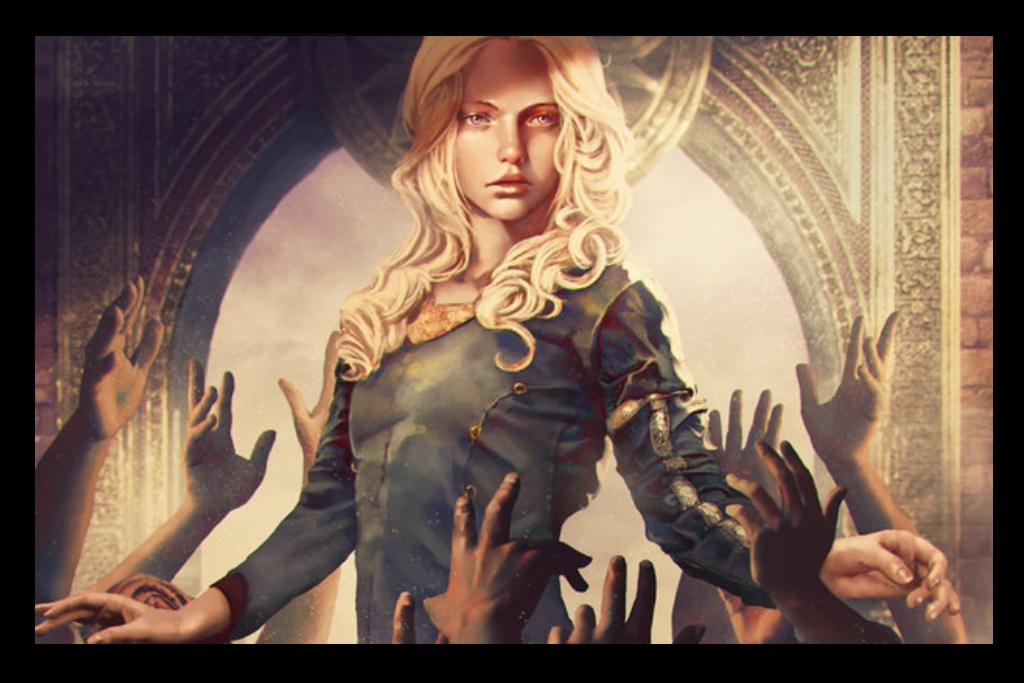
Mantle of Inspiration: This ability alone makes this college worthwhile. You can reposition your entire team, heal them for a small amount, and do it all as a bonus action.
Enthralling Performance: This basically mimics charm person but gives you a fun role-playing opportunity. If you can hold the attention of a small group for a whole minute, you can ad-lib a hilarious distraction while the rest of the party sneaks past the guards, and then send the charmed guards away while you make your way somewhere you shouldn’t be. Considering it’s an elaborate way to imitate a first-level spell, this ability isn’t really crucial.
Mantle of Majesty: Assuming you succeed on your Enthralling Performance, you can now cast command without expending a spell slot and automatically succeed. This ability can lock down a single creature you’ve bored to death with your tall tales, but it doesn’t have any functionality in combat unless you’ve already used a lesser spell to charm the target.
Unbreakable Majesty: Once per short rest you gain a defensive buff that can turn away enemy attackers. If you find yourself surrounded, this can really save your bacon. Even if someone gets through this protection, imposing disadvantage on its saving throws is an equally useful effect, assuming you survive their onslaught.
College of Lore
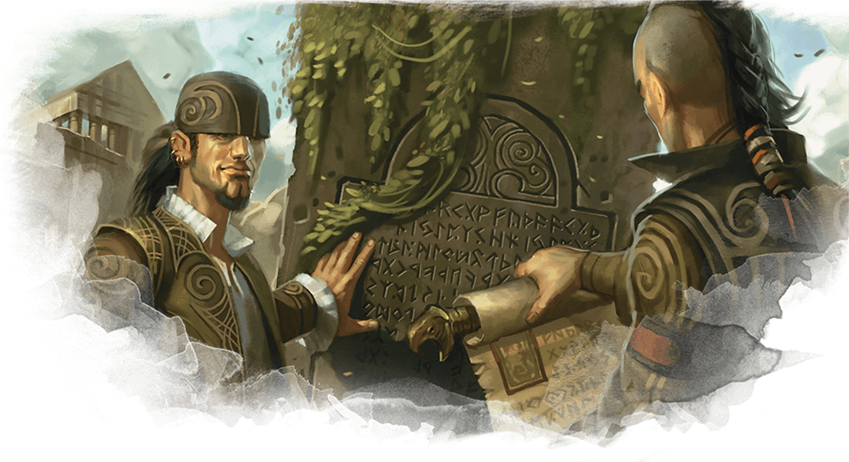
The Bardic College of Lore is the default option for a full caster Bard. It gives you the most options in terms of spellcasting and magical augmentation. It also gives you heaps of skill proficiencies, making you the most useful support and utility character a Bard can be.
Bonus Proficiencies: Three extra skills. This coincides with Expertise, so you can apply it to one or two that you just gained here.
Cutting Words: The ability to manipulate rolls on the fly as a reaction is quite powerful. This can’t apply to enemy saving throws but messing up their attacks can save your life.
Additional Magical Secrets: This ability gives you spells from another class earlier than you normally get them as a Bard of any other college.
Peerless Skill: Add your bardic inspiration to skill checks. This needs to be managed carefully, as you don’t want to burn through them too quickly. However, for an absolutely critical skill check, this will come in handy.
College of SpiritsVRGtR
This Bardic college specializes in telling chilling tales to unnerve and unsettle. If you’re looking for a creepy campfire storyteller, look no further. You Spirit Tales ability is the driving fore behind this subclass, granting you unpredictable and powerful effects that will thrill and haunt your audience.
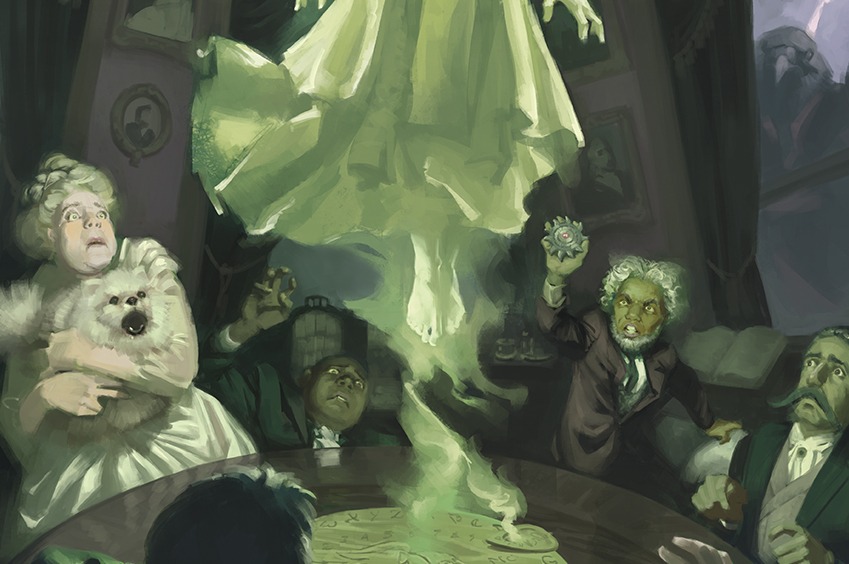
Guiding Whispers: Guidance is easily the best cantrip in the game. You make hundreds of skill checks throughout the course of a campaign, and with this at your disposal, you will have a +1d4 bonus to most of them. It’s a concentration cantrip, so with a quick “good luck” pat on the back, your party benefits from every climb, jump, and tumble while crossing dungeon hazards as well.
Spiritual Focus: Using an occult object as your spellcasting focus enhances your damage and healing spells. Bards can do it all, but only in a mediocre way. This gives a little oomph to your broad set of skills, making up for lost ground your more specialized allies might have over you.
Tales from Beyond: Telling Tales from Beyond is your primary class ability, and it is very cool. It contains a list of powerful effects which grows larger the greater the value of your Bardic Inspiration die becomes. However, there is a major downside to this ability. First, the outcome is random, as dictated by the result of your inspiration die roll. Second, the effects become more powerful at higher numbers on the table, but the longer the list becomes, the lower the chance of rolling any one particular outcome. If you had some control over which tale you could tell, or there were a way to re-roll, this would be much more useful.
Spirit Session: If you only read the first paragraph of this ability, it is incredible. Then you get to the second half, which puts enough restrictions on it to make it basically useless. To be effective, you need to conduct a séance with a large group, and be in need of either a divination or necromancy spell only.
Mystical Connection: Here’s that reroll that makes the Tales from Beyond more useable, unfortunately it comes so late that it’s hardly worth it.
College of SwordsXGtE

While thematically similar to the College of Valor, this Bardic subclass is less powerful than its cousin. It combines some aspects of the fighter class with the several other combat-oriented abilities. This college plays well with others, but not as well as the other Bard colleges do, making it one of the weaker options overall.
Bonus Proficiencies: One of the best aspects of this class is gaining proficiency with medium armor, which is a boon at low levels. However, since you lack proficiency with shields, if you get your Dex to 18, it’s a break even with Light armor at a lower cost and doesn’t hamper your stealth skill.
Fighting Style: Gaining a fighting style is a huge boost to your weapons capabilities. You only have two options, though both play well with a Dexterity-based build. You’re better off choosing Dueling, which leaves you with a free hand to cast your spells, hold a simple instrument, or perform other tasks related to your class abilities. Taking the two-weapon fighting option is less preferable…you’ve already got several options for spending your bonus action.
Blade Flourish: Your Blade Flourish gives you several options. However, each one consumes one of your Bardic inspiration dice, which limits the amount of uses, and diminishes their effectiveness once you start using them on these abilities. Defensive flourish is the only really desirable option, and even so, there’s always the chance you roll a 1 and waste it.
Extra Attack: More attacks mean more damage. This is always a welcome ability. It’s hardly unique, however.
Master’s Flourish: Only once you have Master’s Flourish the rest of this class becomes more viable. Not wasting your bardic inspiration on Blade Flourishes, and being able to use these abilities every round makes a big difference in your action economy and overall damage output. However, you have to wait around until 14th level to get to the point that this class is a viable combat option, so unless you’re stating at a higher level, it might be worth it to pick something else.
College of Valor
If you’re making a weapons master Bard, you’ll want to choose the College of Valor. Gaining proficiency with defensive options and better uses of your inspiration in combat make you a great support melee character.
Bonus Proficiencies: Medium armor and shield proficiency make you less squishy at lower levels. If you’re in a Dexterity based build, once you get to 18 Dex you’ll want to switch back to light armor to keep your stealth up. Shields are always valuable, and work well with a one-handed light weapon.
Combat Inspiration: Adding your inspiration to damage is less useful overall than helping you and your allies land attacks in the first place. However, against low-armor class, thick hit-point total monsters, this will help you carve through quicker.
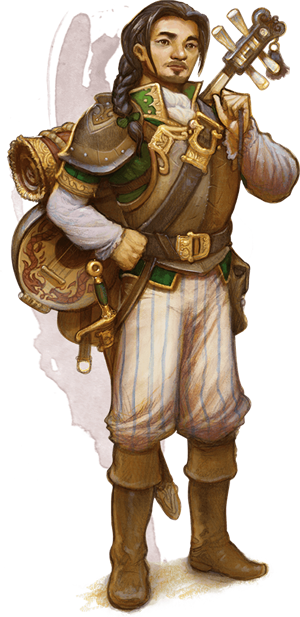
Extra Attack: If you chose this class, you’re most likely going for a combat build, meaning an extra attack doubles your damage output with weapons.
Battle Magic: An excellent one-two punch, hit them with a spell then stab them.
College of WhispersXGtE
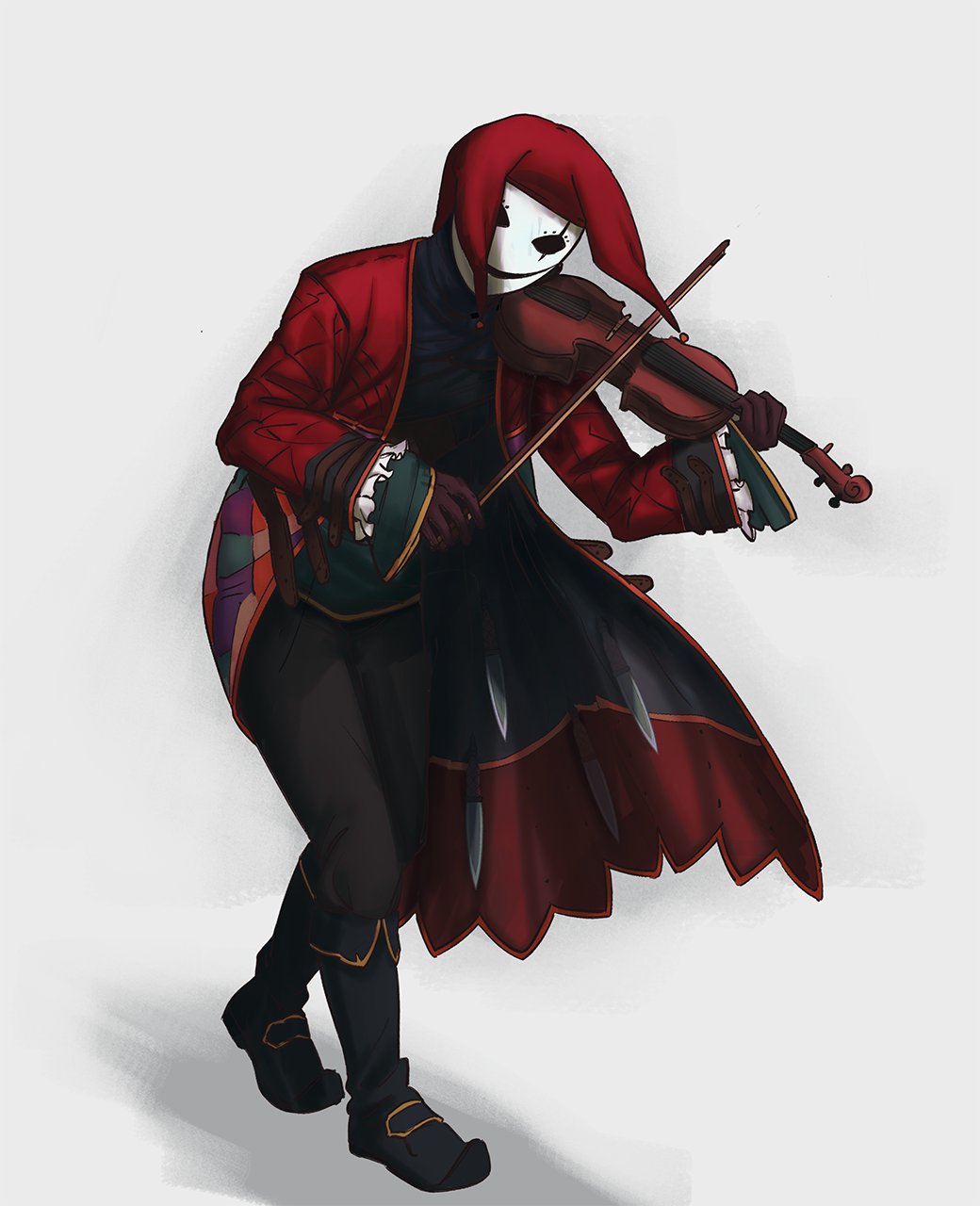
Bards of the College of Whispers are secretive, sly, and sneaky in their procurement of information. They are commonly presented as a jovial entertainer, when secretly they harbor dark truths and hidden agendas.
Psychic Blades: Of all the uses of Bardic Inspiration, this is one of the flashiest, if least useful. Extra damage is less valuable overall, compared to dodging attacks, making saves, and hitting with the attack in the first place. However, 2d8 is nothing to slouch at.
Words of Terror: A casual, out-of-combat fear effect. There’s not a lot of uses for this ability.
Mantle of Whispers: Holy infiltration, Batman! This ability is incredibly flavorful, and lends itself very well to a rogue-like infiltration and information dealing character.
Shadow Lore: A once per day dominate monster effect that leaves no trace of it having been cast, even if they succeed on the save. The only downside is you need to be able to verbally communicate with the target, so prepare tongues or make sure you speak enough languages.
Skills
Bards are the only class without a skill list, which makes them extraordinarily versatile. Given this, depending on your build and party role, you’re going to make drastically different selections. Generally, you’ll want to focus on Charisma-based skills, as that’s your spellcasting stat. Choose a secondary skillset between Dexterity, Wisdom, or Intelligence. Maximize your efficiency by going with one that gives you good boosts. You can also use your expertise to maximize skills you have high ability bonuses in, or even out those which are generally lower.
Acrobatics: Too situational in this edition. If you want to be the jump and tumble type of bard, go with athletics, you’ll have more opportunities to jump, climb, and swim.
Animal Handling: You’re a Bard. This is for Druids and those who use mounted combat.
Arcana: If you’re Intelligence spec, you’re going to want to have this.
Athletics: This is the correct skill for physical activity.
Deception: You need to have at least one among Deception, Intimidation, and Persuasion.
History: The least useful intelligence-based skill.
Insight: Useful for a diplomacy- or deception-focused character.
Intimidation: You need to have at least one among Deception, Intimidation, and Persuasion.
Investigation: If you’ve got an intelligence-build, this is another crucial skill for general exploration.
Medicine: Leave this for the Cleric or Druid, or just use Cure Wounds.
Nature: A solid knowledge skill, but you’re more likely to rely on a Druid or Ranger for this.
Perception: Probably the overall most important skill in the game.
Performance: Bards don’t strictly need to have this, but thematically it makes sense. There’s actually no reason to take this skill other than that you’re proficient with so many instruments right off the bat.
Persuasion: You need to have at least one among Deception, Intimidation, and Persuasion. This is probably the best one of the lot, as it leads to success for the party the legal way.
Religion: An important knowledge skill, but less so if you’ve got a Cleric or Paladin around.
Sleight of Hand: Only If you’re trying to be a Rogue.
Stealth: An essential skill in general, more so if you’re trying to be the party’s Rogue.
Survival: Very situational.
Backgrounds
Acolyte: The bonus languages are the best part of this background.
Charlatan: This is a solid choice for a stealthy Rogue-like Bard.
City WatchSCAG: Not great for Bards.
Clan CrafterSCAG: Not great for Bards.
Cloistered ScholarSCAG: The two knowledge skills work well with a Lore Bard, but otherwise is less than spectacular.
CourtierSCAG: Two Charisma skills and two languages.
Criminal: One of the best choices, especially if you’re the “Rogue” as well.
Entertainer: This makes sense for a Bard thematically, right? Well, it’s actually not good mechanically. This edition is so weird.
Faction AgentSCAG: Customizable, which is exactly what the Bard is.
Far TravelerSCAG: Two solid skills and a language.
FeylostTWBtW: Deception is always useful for a storyteller, and an additional instrument is always welcome for a traveling performer.
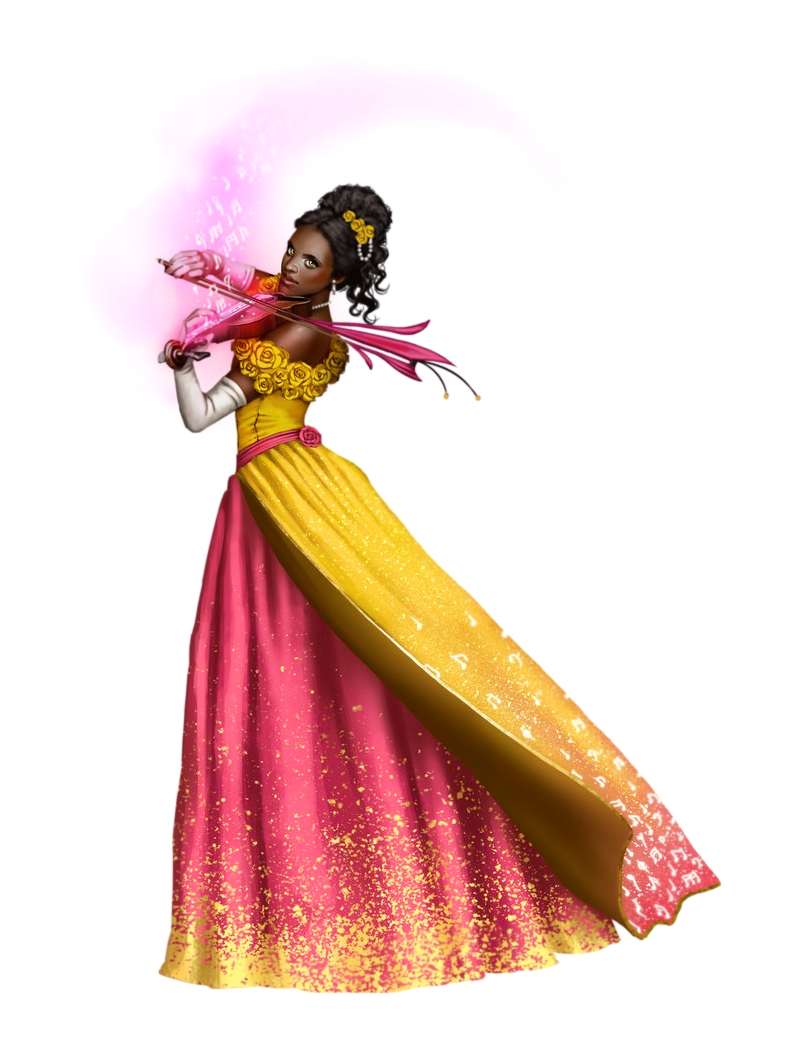
FisherGoS: Not great for Bards.
Folk Hero: Not great for Bards.
Guild Artisan: Good skills and tools that you won’t use.
Haunted OneVRGtR: A decent list of skills to choose from, an interesting trinket, and a great ability.
Hermit: Not great for Bards.
InheritorSCAG: Solid skills for you, and maybe you inherited a Les Paul or something.
InvestigatorVRGtR: This class pairs very well with the College of Spirits, creating a paranormal detective archetype who can blend in and root out cult activity.
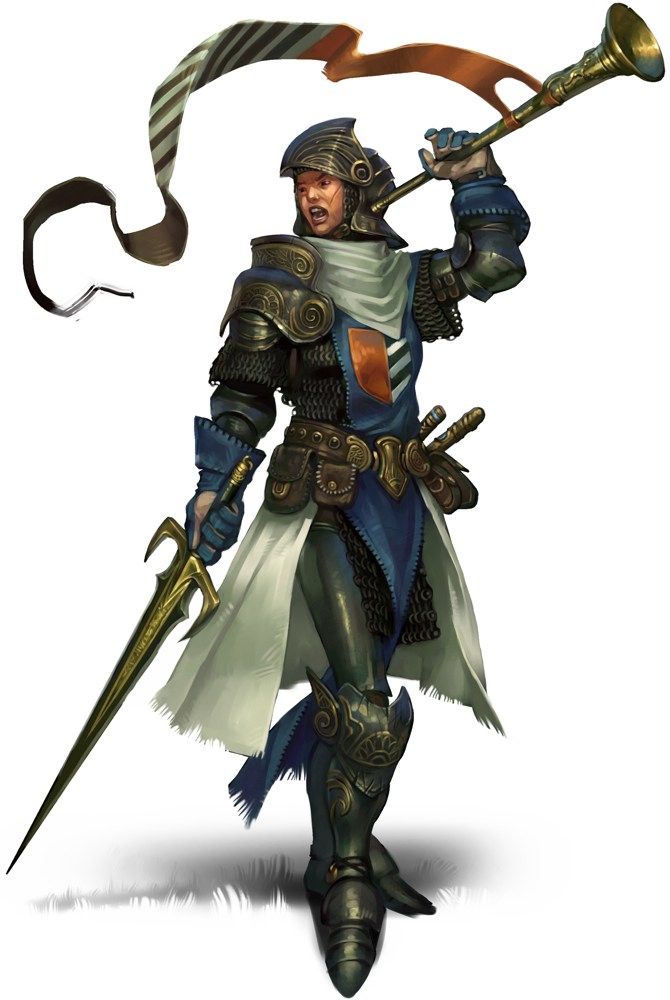
Knight of the OrderSCAG: Two skills, an additional instrument, and a language.
Lorehold StudentSACoC: Any of the Strixhaven colleges are a great choice for Bard, given the amount of additional spells you get access to. However, this one comes with the best skills.
MarineGoS: Not great for Bards.
Mercenary VeteranSCAG: Decent on a Valor Bard, but not great otherwise.
Noble: Two good skills and a language. Gaming sets aren’t very useful in-game but it offers a fun role-playing opportunity.
Outlander: Not great for Bards.
Prismari StudentSACoC: Ten spells known and three more to cast, plus skills. This college gives you the more aggressive damage cantrips Bard lacks.
Quandrix StudentSACoC: Ten spells known and three more to cast, plus skills.
Sage: Two solid knowledge skills, but unless you’re focusing on knowledge skills you can pick a better background.
Sailor: Not great for Bards.
ShipwrightGoS: Not great for Bards.
Silverquill StudentSACoC: Ten spells known and three more to cast, plus skills.
SmugglerGoS: You can get away with this if you’re trying to be the Rogue too, but honestly Criminal is better.
Soldier: Not great for Bards.
Urban Bounty HunterSCAG: A perfect choice. It’s customizable just like the Bard class.
Urchin: Another perfect choice to compete with Criminal if you’re trying to be the party’s Rogue.
Uthgardt Tribe MemberSCAG: Not great for Bards.
Waterdhavian NobleSCAG: Good skills, theme, and a language.
Witchlight HandTWBtW: This is basically Bard: the Race. Everything about it synergizes with your class.
Witherbloom StudentSACoC: Ten spells known and three more to cast, plus skills.
Feats
Alert: You’ll want to go first if you’ve got a lot of buffs to set up, including your Bardic Inspiration.
Athlete: Not great for Bards.
Actor: This opens up some nice options for you as a Charisma-focused character.
Charger: Not great for Bards.
Crossbow Expert: Not great for Bards.
Defensive Duelist: Valor and Blade Bards will find this feat particularly useful.
Dual Wielder: You’ve got too many options for your Bonus action to spend it on a weapon attack.
Dungeon Delver: You’re the most skilled member of the party on your worst day.
Durable: Having access to magical healing is more impactful than having the small amount of extra hit points this offers.
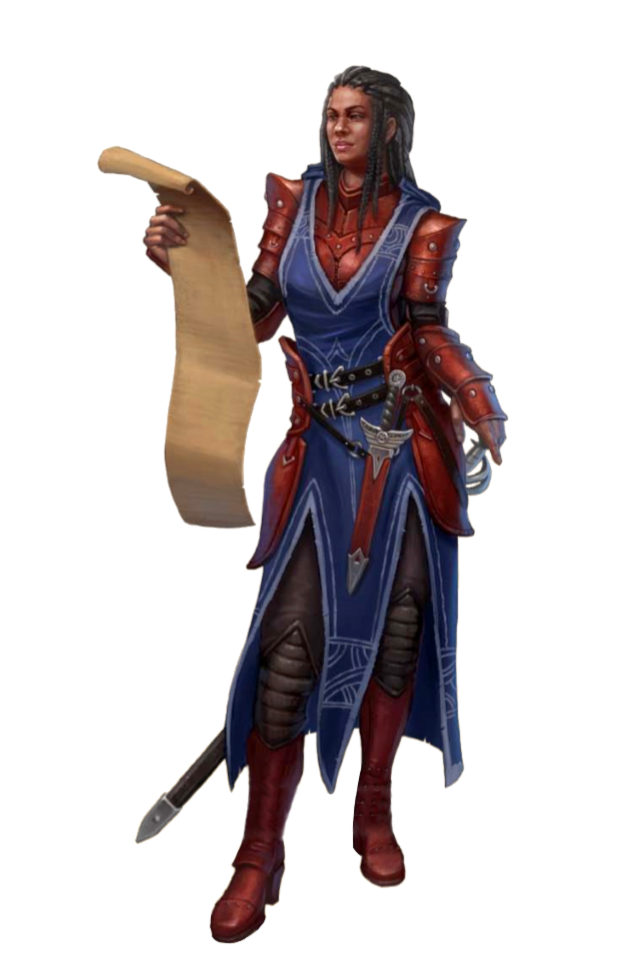
Elemental Adept: Not great for Bards.
Grappler: Not great for Bards.
Great Weapon Master: Not great for Bards.
Healer: Not great for Bards.
Heavily Armored: Not great for Bards.
Heavy Armor Master: Not great for Bards.
Inspiring Leader: This is one of the best feats for you. If you maximize your Charisma, you can drop a huge pool of temporary hit points on the party before each big fight.
Keen Mind: Not great for Bards.
Lightly Armored: Not great for Bards.
Linguist: Not great for Bards.
Lucky: A generally very good feat.
Mage Slayer: Not great for Bards.
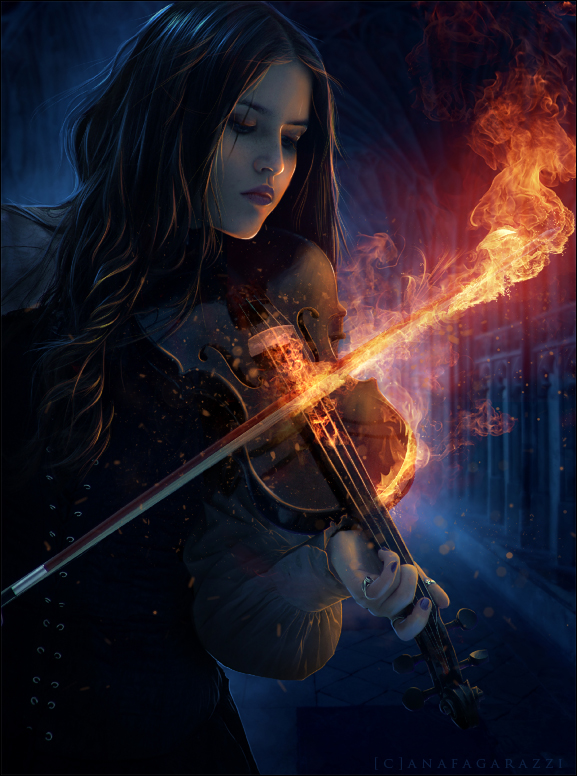
Magic Initiate: Getting some heavier damage-dealing cantrips from the Wizard list make a non-Lore Bard a better ranged magical attacker. If you’re a melee-focused build, getting access to green flame bladeor booming blade boosts your damage output significantly.
Martial Adept: Not great for Bards.
Medium Armor Master: Only a Valor Bard finds use in this feat, but in general you’re better off maximizing our Dexterity and using Light armor.
Mobile: Not great for Bards.
Moderately Armored: Not great for Bards.
Mounted Combat: Not great for Bards.
Observant: Useful, but not crucial.
Polearm Master: Not great for Bards.
Resilient: Get proficiency in your Constitution save to help with concentration if you’re a melee Bard looking to buff/debuff frequently.
Ritual Caster: You’re already a ritual caster, but this nets you a spell.
Savage Attacker: Not great for Bards.
Sentinel: A useful feat in general, but you shouldn’t be the one holding down the front lines.
Sharpshooter: Not great for Bards.
Shield Master: Not great for Bards.
Skilled: You’ve already got the most skills, why not have more?
Skulker: Not great for Bards.
Spell Sniper: Not great for Bards.
Strixhaven InitiateSACoC: Bards have a limited spell list, so gaining access to more spells and cantrips at early levels is a huge boost, especially if you’re playing college of Valor or Swords.
Strixhaven MascotSACoC: Acquiring a stagehand you can swap places with on cue is useful for combat positioning or making a hasty escape.
Tavern Brawler: Not great for Bards.
Tough: You have magical healing, which is more useful in general.
War Caster: if you’ve got a melee spell you don’t want to lose, take this feat.
Weapon Master: Not great for Bards.
Weapons and Armor
Bards come in two flavors- magic-focused, and weapons-focused. In general, weapons-toting Bards are going to be wearing light armor. The benefits of maximizing your Dexterity both for weapons use and armor class outweigh boosting Strength and wearing Medium armor. If you do go for medium armor, use it at low levels while your Dexterity is still low. Once you hit that break-even point of 18 Dex, you’ll want to switch back to light armor to keep your stealth rolls unhampered. Magic-focused Bards are going to go light armor all the way. You’re not going to have access to medium armor at all if you’re a Lore or Whisper Bard. If you’re proficient with a shield, use it.
Finesse weapons are your best friends. You’re going to have higher Dexterity than Strength, so using light and finesse weapons will be your best option.
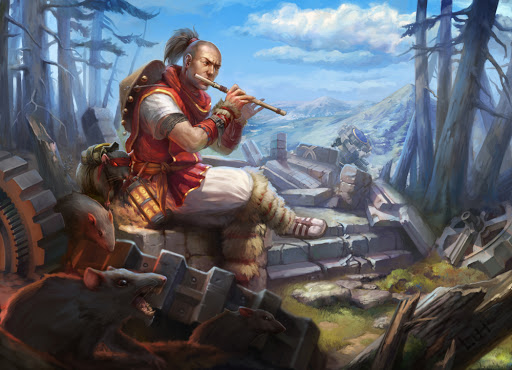
Magic
Cantrips
Blade Ward: You can use the Dodge action and have the same effect.
Dancing Lights: This spell is mage hand and a candle, or just take the light cantrip for a more practical effect.
Friends: This spell is hard to use effectively, given the short duration, and the fact that they instantly know you used magic when it wears off. You can quickly pass someone with it, but it won’t work for a longer encounter that a “bump into.”
Light: For when you don’t have darkvision.
Mage Hand: An absolute must for causing mischief, springing traps, and delivering wedgies at a distance. Every mage needs a third hand.
Mending: There’s barely a reason to have this spell.
Message: Sneakily sending messages to the Rogue on a dual infiltration mission to coordinate a sneak attack is one of the coolest things you’ll do in this game.
Minor Illusion: There are a million uses for this spell, most of them mischievous.
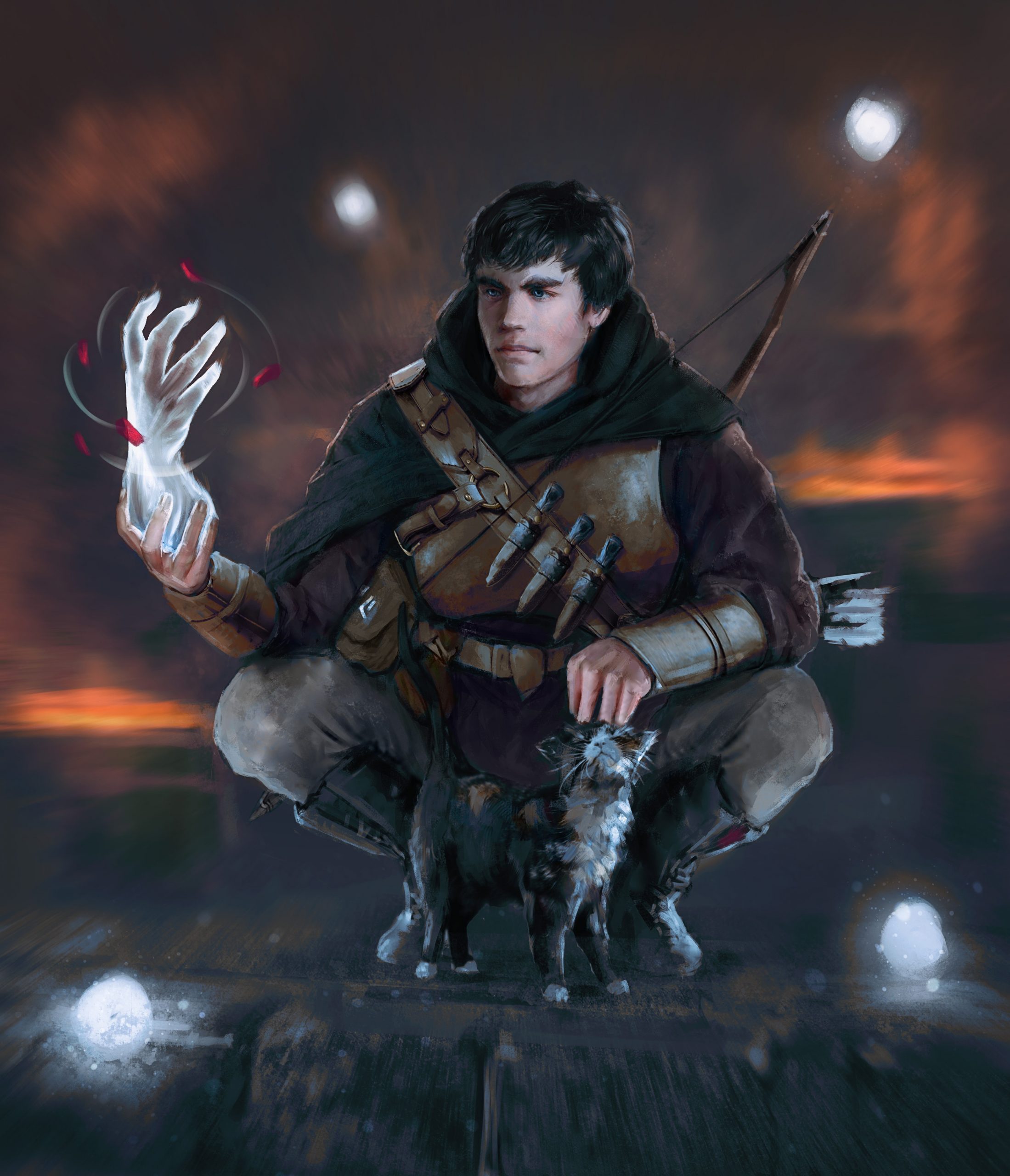
Prestidigitation: The quintessential “I have magic” feature of any caster.
ThunderclapEEPC / XGtE: The only true melee spell you need as a caster. Might as well get a small-scale AoE at first level.
True Strike: This spell is bad. You make the same number of rolls, with only one opportunity to hit.
Vicious Mockery: Nothing resists psychic damage. And it comes with a debuff. Bonus points if you can come up with topical insults each time you cast it.
1st-Level Spells
Animal Friendship: Only if you aren’t proficient in animal handling.
Bane: a guaranteed mass buff is better than a save-vs-debuff for a group of enemies.
Charm Person: Difficult to use in combat, but in social encounters this is a great tool for controlling NPCs.
Comprehend Languages: Until you get tongues, this will do just fine.
Cure Wounds: Bards can fill in for any class role. With this single spell, you’re a budget Cleric. Don’t miss out on Healing Word for the increased action economy synergy!
Detect Magic: one of the must-have spells for any adventuring party.
Disguise Self: Either you’re proficient with a disguise kit, or you know this spell.
Dissonant Whispers: A very strong spell with range and good effects for crowd control. Also, Bards have a great selection of spells that only require verbal components, so remember that when you’re grappled or otherwise encumbered.
Earth TremorEEPC / XGtE: It deals damage, it knocks targets prone, and it creates difficult terrain. It doesn’t do any of these particularly well, but it does all of them at once.
Faerie Fire: The only real option you have to deal with invisible creatures. Also, at first level, you’re going to need an edge to kill 1HD things before they hit you.
Feather Fall: You don’t need this all the time, but when you do it saves your life. Great at higher levels if you’re fighting at heights, or if you get dispelled while flying.
Healing Word: More useful than Cure Wounds, because it keeps your hands free and allows you to use a cantrip in the same round.
Heroism: At low levels, this is your buff.
Identify: Generally reserved for an artificer or wizard.
Illusory Script: Very situational, and with your limited number of spells known it’s too niche for you.
Longstrider: Dash if you need to go farther. 10 feet isn’t impactful enough to waste a spell slot.
Silent Image: Until you get major image, this is your go-to illusion for when minor illusion won’t cut it.
Silvery BarbsSACoC: Imposing disadvantage on an enemy and granting advantage to an ally as a reaction provides a very useful tactical advantage.
Sleep: The best spell imaginable at first level, but you’ll want to replace it when you get to 5th level for sure.
Speak with Animals: Take proficiency in Animal Handling.
Tasha’s Hideous Laughter: With the caveat that the target must be intelligent, this is a really great way to take one enemy out of the battle.
Thunderwave: Boom! the best AoE at low levels, with the bonus effect of clearing a space for you to escape.
Unseen Servant: When you’re much higher level and have a fortress and spell slots to spare, this is a great way to manage your property.
2nd-Level Spells
Animal Messenger: Very situational. Interesting for a druid maybe?
Blindness/Deafness: A long duration to remove someone from combat. If you hit a spellcaster, they’re going to have a really hard time targeting you with spells.
Borrowed KnowledgeSACoC: Burning a second level spell slot for a self-only temporary skill proficiency isn’t too great. The only time this is worth it is if you’re going to spend an hour doing a repetitive task, making many of the same roll. Otherwise, get a specialized party member to perform said task, or use guidance, a cantrip, which can be cast on anyone.
Calm Emotions: A unique combination of situational use and mass effect crowd control.
Cloud of Daggers: It’s tough to keep an enemy in the area of effect. Best for confined spaces, if you can pin someone down this adds some good damage over time.
Crown of Madness: Not only is it concentration, it costs your action as well. This spell is trash.
Detect Thoughts: You most likely don’t have the intelligence score to back this up.
Enhance Ability: A really great buff with a ton of options. Every member of the party has different needs, and this spell can address most of them.
Enthrall: A situational effect with a short duration. Usually, you can role-play a distraction or use a performance or persuasion check in lieu of this.
Heat Metal: When you’re level 3, and encounter your first enemy in full plate with a magic sword, you’ve got to cast this twice. Once to make him drop the magic sword, and again to cook him alive in his AC 18 death trap.
Hold Person: Pinning a single creature down is situational- in a large melee you’re going to get beat focusing on a single target. But imagine the villain with a knife to the princess’ throat and you walk in and disarm him with a look.
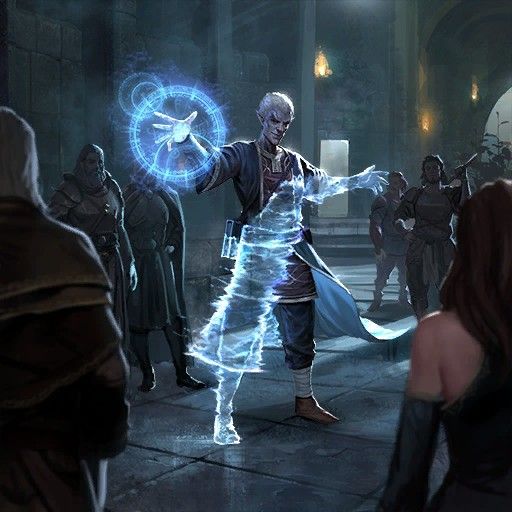
Invisibility: An essential spell for multiple reasons. Infiltration, escape, reconnaissance, sneak attacking, etc.
Knock: Thieves’ tools are great, but what about magical locks? You need this for that 1% of times when a skill check isn’t enough.
Lesser Restoration: This is the Cleric’s job.
Locate Animals or Plants: This is a survival check.
Locate Object: This is an investigation check.
Magic Mouth: A fortress-building spell you don’t need in most situations.
Phantasmal Force: Any unintelligent creature you face will easily fall victim to this spell.
Pyrotechnics: This spell is not good. it doesn’t do enough or last long enough to really matter.
See Invisibility: Long duration, unique effect.
Shatter: Ah yes, the Bard’s little fireball. A good way to destroy the evidence.
Silence: This spell shuts down almost all spellcasters. It turns off your own abilities as long as you’re in the area, but if you’ve got a bruiser and a spellslinger in a room together, and only one of them can attack, guess who’s going to win?
SkywriteEEPC: Very situational. Find it on a scroll if you need to advertise
Suggestion: An 8-hour duration concentration.
Warding WindEEPC / XGtE: A very solid buff for a Bard in the middle of the scrum. It does a whole lot, but despite all the great effects, as a support character you probably shouldn’t be in a position to need it.
Zone of Truth: This is an insight check.
3rd-Level Spells
Bestow Curse: This spell is the best debuff available to the Bard. It’s versatile, powerful, and very impactful.
CatnapXGtE: The exact time of a short rest is up to the DM. If you’re playing a strict rules-as-written, this will save you some time.
Clairvoyance: The best scouting and scrying option, clairvoyance gives you great bang for your buck. At 3rd level it ‘s got a 1-mile range, and you can scry into places you can’t see.
Dispel Magic: Another spell In the essential spellbook.
Enemies AboundXGtE: A great way to conquer the enemy’s pet and use it against them.
Fear: As advertised, a great crowd control option.
Feign Death: Situational and silly. Use a deception check.
Glyph of Warding: Exploding runes has seen better days. The material cost is too high, it can’t be moved, and the spell trigger effect is unimpressive for what it’s worth.
Hypnotic Pattern: A really great AoE crowd control option.
Intellect FortressTCoE: This spell is an amazing defense against enemies who rely on spells, charm effects, and fear. The bonus to the saves apply to any and all Int, Wis, and Cha saves, regardless of the source.
Leomund’s Tiny Hut: The best way to long rest in a dungeon.
Major Image: If you’re an illusionist, you’re going to use this frequently.
Nondetection: It’s expensive, and good enough stealth or having pass without trace will usually be enough to get by.
Plant Growth: Very situational, and something the druid should be doing, not you.
Sending: There are no cell phones in D&D, but there is Sending.
Speak with Dead: Plot. That’s it. Just roll History.
Stinking Cloud: Hypnotic pattern is better, but this lets you keep hammering on the victim without allowing them to escape.
Tongues: The capstone linguist spell. If you don’t have a diverse party who speak all the common languages, this is a good tool to have.
4th-Level Spells
Charm MonsterXGtE: When you want to mind control a non-humanoid, but in a … nice…way? Short of dominate monster, this is the catch-all stop-them-in-their-tracks spell.
Compulsion: A weaker crown control option at a higher level. The main benefit is you can force them to move en masse and get out of your way.
Confusion: It’s unreliable and chaotic. Generally with a debuff you want a consistent reliable effect.
Dimension Door: It’s unconscionable that Bards don’t get misty step. This is your first emergency teleportation option, and it’s a good one.
Freedom of Movement: Dimension door solves most of the same problems, but the longer duration on this allows you to slide through a crowd unimpeded.
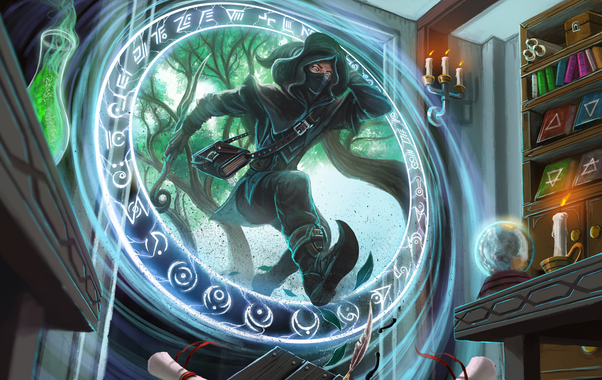
Greater Invisibility: This is the crown jewel of support spellcasting. Give this to a Rogue for reliable powerful attack damage. Give it to a caster
Hallucinatory Terrain: This is good for setting up an ambush. It lasts for a long time.
Locate Creature: The fact that it has a limited range really puts a hamper on the usefulness.
Polymorph: An amazing spell that is undercosted for what it does for you.
5th-Level Spells
Animate Objects: This is a great way to occupy a group of baddies. Throw the book at them…and the desk, shelf, chair, and table.
Awaken: This is a cool spell, but it’s very situational.
Dominate Person: It only works on humanoids, which is a major downside.
Dream: This spell is really cool, but it’s very hard to use.
Geas: This works better on a scroll than as one of your few spells known.
Greater Restoration: If you have a Cleric, this is their job. If not, you better have this spell ready.
Hold Monster: Less useful than dominate, hold at this level works on everything.
Legend Lore: Roll a history check.
Mass Cure Wounds: This is for the primary healer.
Mislead: Situational.
Modify Memory: The single most unethical spell in the game.
Planar Binding: It’s expensive, and you’ll likely never need this. It’s more of a cleric-binding-a-demon style thing than anything else.
Raise Dead: It’s weird that this is on the Bard’s list.
Scrying: You don’t always need scrying, and it can be a bit ambiguous at times, but the effect is undeniable powerful.
Seeming: Very situational. It’s hard to justify this as one of your few spells known.
Skill EmpowermentXGtE: An amazing buff to drop on yourself or the Rogue before a stealth mission. If you know a lot of skill checks are coming up, this is your go-to. Add a Guidance user into the mix, and you’re golden.
Synaptic StaticXGtE: Bard’s higher-level take on fireball. It’s got a shorter range, but the psychic damage type means fewer things will resist it. Also, using it against a horde of mindless enemies means they won’t have adequate Intelligence saves to resist it.
Teleportation Circle: Situational, but outside teleport this is your best option for moving the party across a great distance.
6th-Level Spells
Eyebite: The best spells are useable for multiple actions. Eyebite is just that. Considering you only get one 6th-level spell slot, you get to play with this one for a whole minute.
Find the Path: Situational, and doesn’t provide information on dangers you might find along the way. Don’t waste a higher spell slot on something Investigation or History can tell you.
Guards and Wards: Another fortress-building spell. Good at what it does, but tough to justify on a wandering character.
Mass Suggestion: End a fight by making everyone sit down and take a beat.
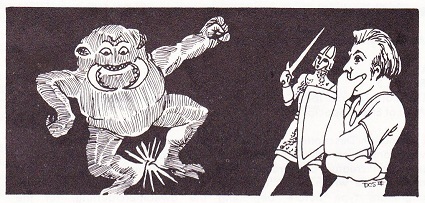
Otto’s Irresistible Dance: While this is quite hilarious, it does the same thing as Hold Monster.
Programmed Illusion: A long term distraction.
True Seeing: Situational, but powerful.
7th-Level Spells
Dream of the Blue VeilTCoE: This spell is a plot point. unless your DM is hinting heavily at your need to learn it, you can probably skip it.
Etherealness: This spell is incredibly powerful, making you untouchable, uncatchable, and untrappable. You can get into or out of anywhere. As written, it can’t be dispelled unless you cast dispel magic on it, which is an odd quick, considering it has an 8-hour duration.
Forcecage: This spell is absolutely devastating when combined with an area of effect damage-over-time spell. Set your trap, and then box them in. You can even drop it on yourself, short rest, and wait until it expires to continue the fight.
Mirage Arcane: This spell is immensely powerful. The range and effect are both extremely wide. Depending on your own creativity and the leniency of the DM you can get away with quite a bit.
Mordenkainen’s Magnificent Mansion: While a grand expression of your magic, this spell is quite costly compared to what it does. However, if you’ve spent enough time living in a tiny hut, this is quite an upgrade.
Mordenkainen’s Sword: You’re better off using your Magic Secrets ability to learn spiritual weapon or Bigby’s hand for a similar effect.
Project Image: A very situational spell that can be accomplished with any lesser illusion and a bit of clever role playing.
Regenerate: If you don’t have a Cleric or other primary healer, you need this available to you. It’s a clunky spell that doesn’t work as well as others during combat, but after a dangerous adventure you’ll need this to avoid losing party members to lost limbs.
Resurrection: Again, this is the Cleric’s responsibility. But, if you’re the healer…you absolutely need this.
Symbol: A versatile and powerful spell, but given its stationary nature, it’s tough to use effectively unless you’re building a fortress.
Teleport: All the spells at this level would be great to have access to at once. A Magnificent Mansion to store your souvenirs in so you can teleport around the multiverse. Protect it with Symbol. You’re set! However, this is the only one that’s useful on its own.
8th-Level Spells
Dominate Monster: The best control spell in the game. You’ll want to use it in combat, but that’s very risky. Grabbing someone unsuspecting and forcing them to do something dangerous, politically or physically, is your better option.
Feeblemind: This spell is capable of quite a few things. It’s complicated, and requires a lot of cooperation between the caster and the DM so be careful what you wish for…
Glibness: Bards are the weakest full casters in the game, but with this in effect they can shut down any opponent spellcaster by making Counterspell and Dispel Magic checks round after round and turning off their magic.
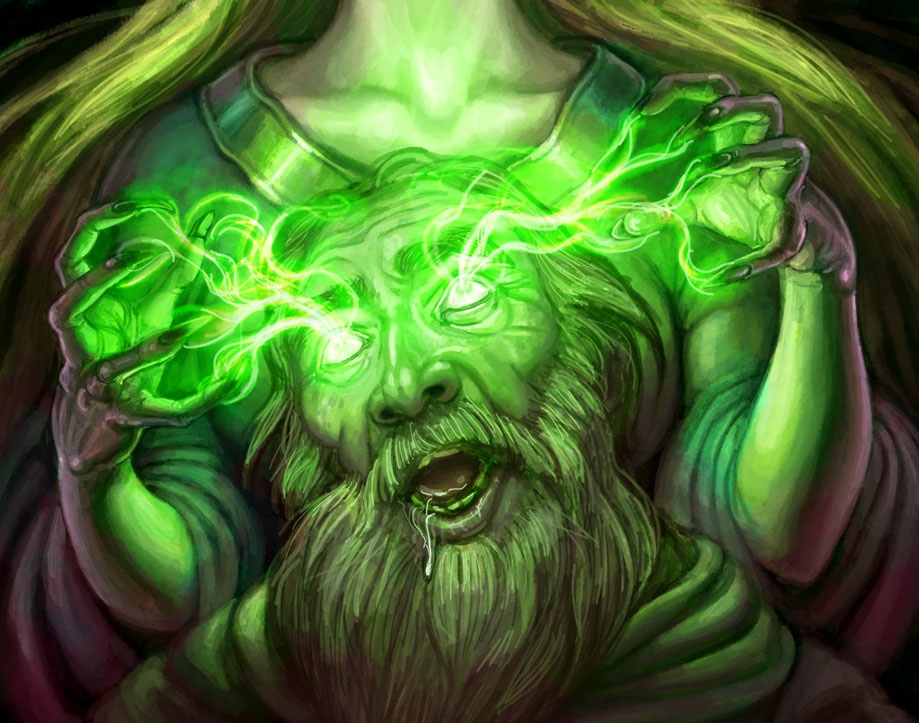
Mind Blank: Very situational.
Power Word Stun: All the Power Word spells are tricky to use. They’re best used against weakened foes or enemy spellcasters who have lower HP.
9th-Level Spells
Foresight: The best buff in the game. It has an 8-hour duration, so once you get to this level you can just live most of your life with this effect turned on.
Mass Polymorph: If you’re a group of spellcasters who have run out of spells, suddenly you’re a group of Tyrannosaurus Rex who…don’t need spells.
Power Word Heal: Full heal and status condition removal.
Power Word Kill: It’s tragic that you only get one chance to use this. There’s no way to know exactly how many hit points an enemy has left. This spell requires luck or metagaming to be used effectively, but it’s insanely powerful when it hits.
Psychic ScreamXGtE: Making up to ten creature’s heads explode is the ultimate display of your power.
True Polymorph: Powerful, versatile, and it lasts an hour. You are limited only by your imagination and experience here. Honestly, once you reach level 20 you should just turn yourself into a dragon permanently anyway.
Multiclassing
Barbarian: Ah, the Bard-barian. It is a fun roleplaying cross-class, but functionally it’s just too weird.
Cleric: No ability synergies here.
Druid: No ability synergies.
Fighter: Take a level or two of Fighter before you go into Lore Bard and get the best of the Valor Bard up front.
Monk: Not a lot of synergy here.
Paladin: A solid alternative to Fighter if you value the spells and other abilities over the martial dice. The Ability score synergy is helpful too.
Ranger: Not a lot of synergy here.
Rogue: If you cross into Rogue, you can pick up enough skills and expertise to be more than proficient in everything.
Sorcerer: Charisma-based spellcasting, and access to useful cantrips right away.
Warlock: Charisma-based spellcasting, and access to useful cantrips right away. Also, Hexblade Warlock gets you Medium armor, useful weapons, and spell slots that recharge on a short rest.
Wizard: Cantrips for a one-level dip, but otherwise you’re better off with Sorcerer.
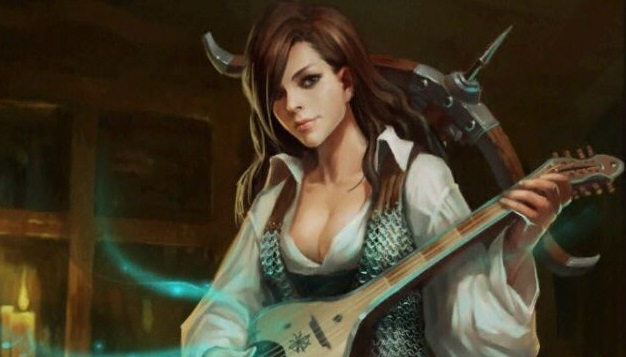
References
DMG Dungeon Master’s Guide
EGtW Explorer’s Guide to Wildemount
ERLW Eberron: Rising from the Last War
EEPC Elemental Evil Player’s Companion
GGtR Guildmasters’ Guide to Ravnica
MM Monster Manual
MToF Mordenkainen’s Tome of Foes
PHB Players Handbook
SCAG Sword Coast Adventurer’s Guide
TP Tortle Package
VGtM Volo’s Guide to Monsters
XGtE Xanathar’s Guide to Everything
Is the D&D bard class not your thing?
Check out our comprehensive guide to all the D&D 5E classes and how to choose one that best suits the character you’d like to play.





